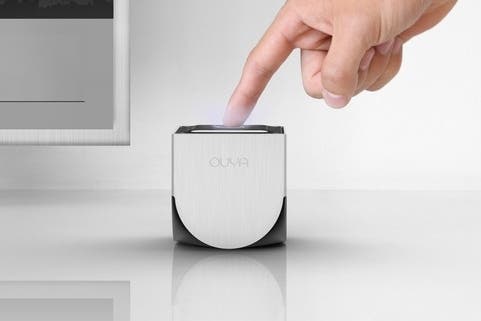"Too many loopholes" prompt Ouya Free the Games Fund rule change
Gridiron Thunder dev pulls out of promotion.

Ouya is making important changes to the way its controversial Free the Games Fund works after it admitted the program contained "too many loopholes".
The $1 million promotion had offered to match the donations made to Kickstarter games that raised at least $50,000 in exchange for six month exclusivity to the micro-console.
A number of games that successfully qualified for the program were accused of gaming the system after observers noticed unusually high average pledge amounts to the likes of Gridiron Thunder and Dungeons: the Eye of Draconus.
Now, amid growing criticism from the development community, Ouya boss Julie Uhrman has admitted to problems with the fund, and updated its rules.
"The program isn't working," she said in a video update, below. "Regardless of my best intentions, there are just too many loopholes."
The project minimum has been lowered from $50,000 to $10,000. "We heard you that $50k is too high," Uhrman said. "We wanted to make sure your games get made, so we lowered the goal. And, we know first-hand, that great games can be made for $20k or sometimes less."
The match amount is now 100 per cent of the funding goal to a maximum of $250,000. "If you receive more than you asked for from your backers, GREAT, but this should be a measurement of community interest, not a push for more funding," Uhrman said.
Now, for every $10,000 raised on Kickstarter the crowdfunding drive must have a minimum of 100 backers. "The intent is for the community to want your game, not a small number of well-resourced supporters," Uhrman said. "We felt we needed to look at the minimum number of backers to make sure it is in line with the spirit of our program."
Ouya has tweaked its exclusivity requirement so that developers can launch on PC at the same time as the micro-console. "We want your game on the TV, but we also want your audience to grow. So, if you want to build a PC version at the same time, go for it," Uhrman said.
And the controversial bonus has been ditched entirely. "We agree it just didn't feel right," said Uhrman. "We think this will support the nature of the fund-to make great games."
She continued: "You need to play by the spirit of the fund as much as the rules. We can't account for every loophole. So, if we, or our community, feel you are gaming the system, we will review your project (and consult with our developer friends for their advice) and determine whether to fund it or not."
Towards the end of the video update, Uhrman raised Gridiron Thunder, the game at the centre of the Free the Games Fund controversy. The American Football game raised $171,009 from just 183 backers - much more than the $75,000 goal. That means backers, on average, pledged $934.48 per person.
As a result, some consider the crowdfunding drive a "scam", although the developer has denied any wrongdoing, saying it benefited from wealthy backers in Silicon Valley and the sports industry. The company behind it, MogoTXT, was set to receive $171,009 from Ouya - that's on top of the Kickstarter money.
Now, MogoTXT has pulled Gridiron Thunder out of the Free the Games fund, saying they don't need the extra cash.
"They called us and they let us know that they're pulling themselves from the campaign, that they raised enough money from Kickstarter to launch it on their own," Uhrman said. "They want that money to go to you the developer, to bring your game to Ouya.
"I just want to to say that's amazing. They didn't have to do that, and I think it's incredibly awesome of them. We've already seen some of the game, it's looking great, and we're looking forward to working with them on some other stuff."
An update on the Gridiron Thunder Kickstarter page confirmed the move: "We feel that too much of the focus lately has been on our Kickstarter campaign instead of on our game. Our hope is that people will now focus more on the game we are about to launch and that we are very excited about.
"We are pleased that our decision will mean that there will be more money for other developers who otherwise may not be able to develop games. We hope to see some really great games come out of the Free The Games Fund.
Developers have reacted to the news positively. Indie developer Sophie Houlden, who pulled her game Rose and Time from the Ouya marketplace in protest at the micro-console manufacturer's disappointing response to the Free the Games fund controversy, thanked Uhrman for listening to criticism.
"I wouldn't say that the fund is now perfect, but it is a *really* big step in the right direction, and I expect/hope a lot of indies will go for it as it looks like it can really help now," she wrote in a comment on Ouya's website. "I want them to be able to afford to do that, and I want to play their games too.
"If you can keep this up, keep listening to concerns of gamers and developers, I think it will be super promising for the console. My faith has certainly gone a long way to being restored. I'll be keeping an eye on things for a while and hopefully I can find myself being comfortable bringing my game back to the console, and I might even consider giving the fund a go myself."
Some remain sceptical of the fund, however, and want it scrapped entirely. "We're not going to pull this program," Uhrman insisted.


